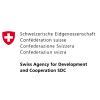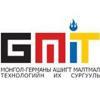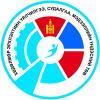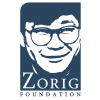
IRIM conducted survey titled ‘Promoting Inclusive Education in Mongolia’ under the implementation of the project titled ‘Sustaining Access to and Quality of Education during Economic Difficulties’ cooperated between The Asian Development Bank and the Ministry of Education, Culture, Science and Sports (MECSS) of Mongolia.
Main objective of the survey was to identify educational needs of children with functional difficulties (CWFDs) and to develop recommendations to improve inclusive environment based on their special needs. In this regard, IRIM research team screened the 2-17 aged CWFDs, which means children who is at high risk of having disabilities in target areas. After conducting screening assessment, the children’ educational experience and their special needs were studied.
As a main methodology, the research team used the ‘Child Functioning Module’ of Washington Group to screen CWFDs who has risk of inadequate education. The functionings, considered within the framework of the module of Washington Group, are the basic abilities used in daily life that can directly affect children's social participation in inaccessible environment. In order to define the common challenges and further needs in educational environments among CWFDs, “Index of Inclusion” of Tony Booth, Mel Ainskow, which is a main methodological source that helped to develop the Inclusive school was used.
Quantitative data collection was conducted within the smallest administrative units (khoroo, baghs) where the ADB project’s target kindergartens and schools located. They included:
- Darkhan soum of Darkhan-Uul province;
- Jargalant soum of Khovd province;
- Mandalgobi soum of Dundgobi province;
- Tsagaannuur soum of Khuvsgul province; and
- Songinokhairkhan district of Ulaanbaatar city.
In addition, representative from eight soums of Bayan-Ulgii, Bayankhongor, Orkhon, Selenge, Dornogobi, and Dornod provinces were included in the qualitative data collection, in order to include minorities and those in remote areas of the country, ensuring research inclusiveness.
We found that 9.1 per cent of the children involved in the screening of 9 555 children aged 2-17 in total 5 296 target area households had some functional difficulties. By the classification of the child functioning:
- children in the 2-5 age group had more functional difficulty in controlling behavior, communicating, learning and playing; and
- children in the 6-17 age group had more depression and anxiety.
As children’ age increases, seeing, walking, anxiety and depression has increased, indicating that it is necessary to provide support, appropriate policies and services for CWFDs. Therefore, these children need additional support and assistance from parents and educational organizations for effective participation in social life and schooling.
In order to assess the difficulties and educational needs of children who has been identified with functional difficulties, the indicators of the Index of Inclusion were calculated in accordance with the four general indicators including inclusive environment of school policy, practice, culture and physical and results were analyzed through its socio-economic factors. The results of the study showed that all indicators were at inadequate level and could be assumed that implementation of Inclusive education in target areas, is at early stage of development. Moreover, the special needs of CWFDs, studying in regular schools and kindergartens were not being met their educational needs, or equally recognized at school environment, in particular teaching instruction are not differentiated, modified and adapted.
We hope that the findings of the survey will contribute to the development of the evidence-based policy planning to promote right of education for all learners to the decision makers, policy-planners and sector researchers.
Full report of the survey is available at the link below.
.png)

.png)

.png)
.png)
.jpg)




































